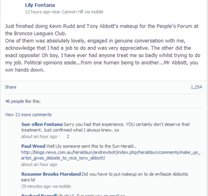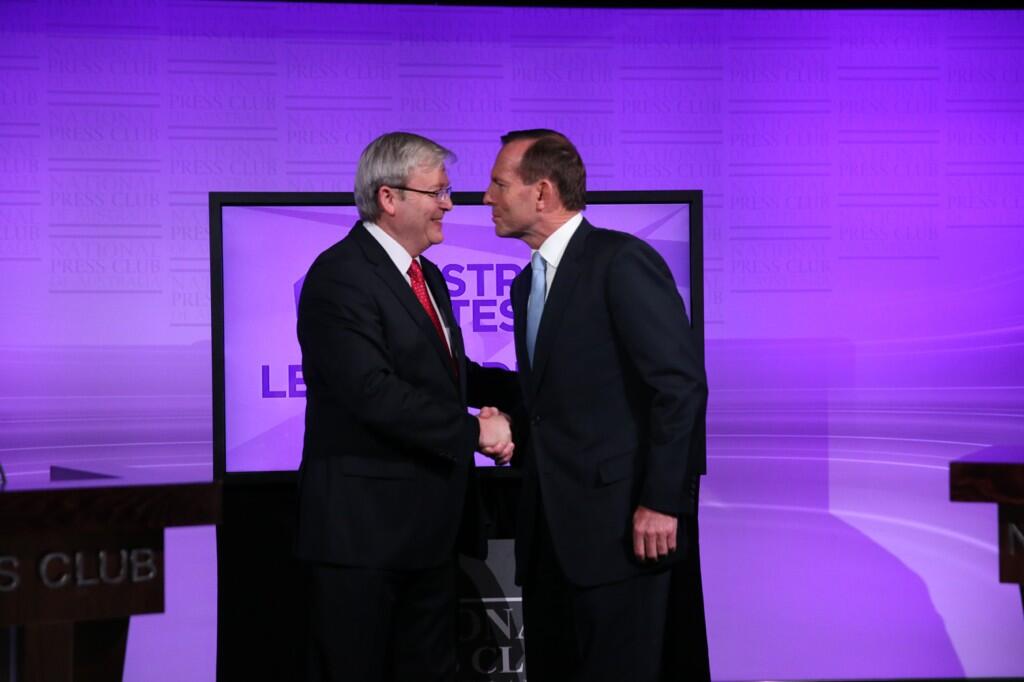K Rudd’s tax raid on smokers is an interesting exercise in smash and grab economics. It affects traditional Labor voters more than anyone else, but is likely to be meekly accepted, or wildly acclaimed, by health and consumer groups across the country.
If he beats up on his own like this you have to wonder who is safe.
There is no justification for a price hike – apart from the fact that the government is desperately short of cash and won’t take the hard decisions to fix that.
Rudd tries to disguise that by claiming it is a health measure, but there is scant evidence that raising cigarette prices will have much of an effect on smoking.
Australia already has the most expensive cigarettes in the world. In US dollars a pack of Marlboro will set you back $17.70. Next most expensive is Norway $15.80, NZ $14.50, Ireland $13.9, and NY $12.50. Then you’re down to $10 with the average world price being a long way south of that.
We also have the fourth lowest smoking rate in the world.
Ah ha, you might say, so that proves increasing the price works. Well, not exactly.
Australia already had a low smoking rate before Kevin Rudd last hiked prices – by 20%. So excise increases may have followed habits, not the other way around.
And there seems to be little mathematical correlation between price and rates of smoking.
The countries that are in first, second and third spots for lowest rates of smoking all have cheaper cigarettes. Sweden has the lowest smoking rate and you can buy a pack there for $7.10. Iceland is next and a pack is $8.30, then the USA, where apart from New York a packet is less than $10. Canada, number 5 is $9.90. New Zealand and Norway then come next, but they are followed by Mexico, where the price is $3.20. Ireland, once the poster child for high prices, is 25th with a price per pack of $13.90 but a consumption rate about 50% higher than ours.
On these numbers it seems to be very difficult to get smoking rates below 20%, and while price might be a factor, other factors dominate.
The government is also running the line that the extra excise is needed to meet the health burden of looking after smokers, and the government quotes a figure for this of some $30 billion.
Nick Cater and Andrew Bolt both have some excellent analysis of this claim which appears to be an exaggeration of around 1,000%. The Federal Treasury estimates smokers cost the health system $318 million, and with this hike revenue to the government will be $7 billion.
The tax take is not surprising. Currently excise amounts to about a third of the cost of a cigarette, and a 25% increase should take that to around 42%.
Which means that the Commonwealth will be the biggest profiteer from this trade netting far more from the sale of a cigarette than the manufacturer, even counting the resulting health expenditure as their “cost of goods”.
We’re back to Kleptocratic government where the only justification needed for seizing money not its own is to spot a vulnerable industry with a pile of money where the government can dream up a quasi-moral justification for making an exception to the rules that apply to every other industry.
Today the tobacco industry is easy prey. A few years ago it was the mining industry and the “big polluters”, and apparently, as of the budget statement later today it will be the banking industry.
I wonder who’s next.

